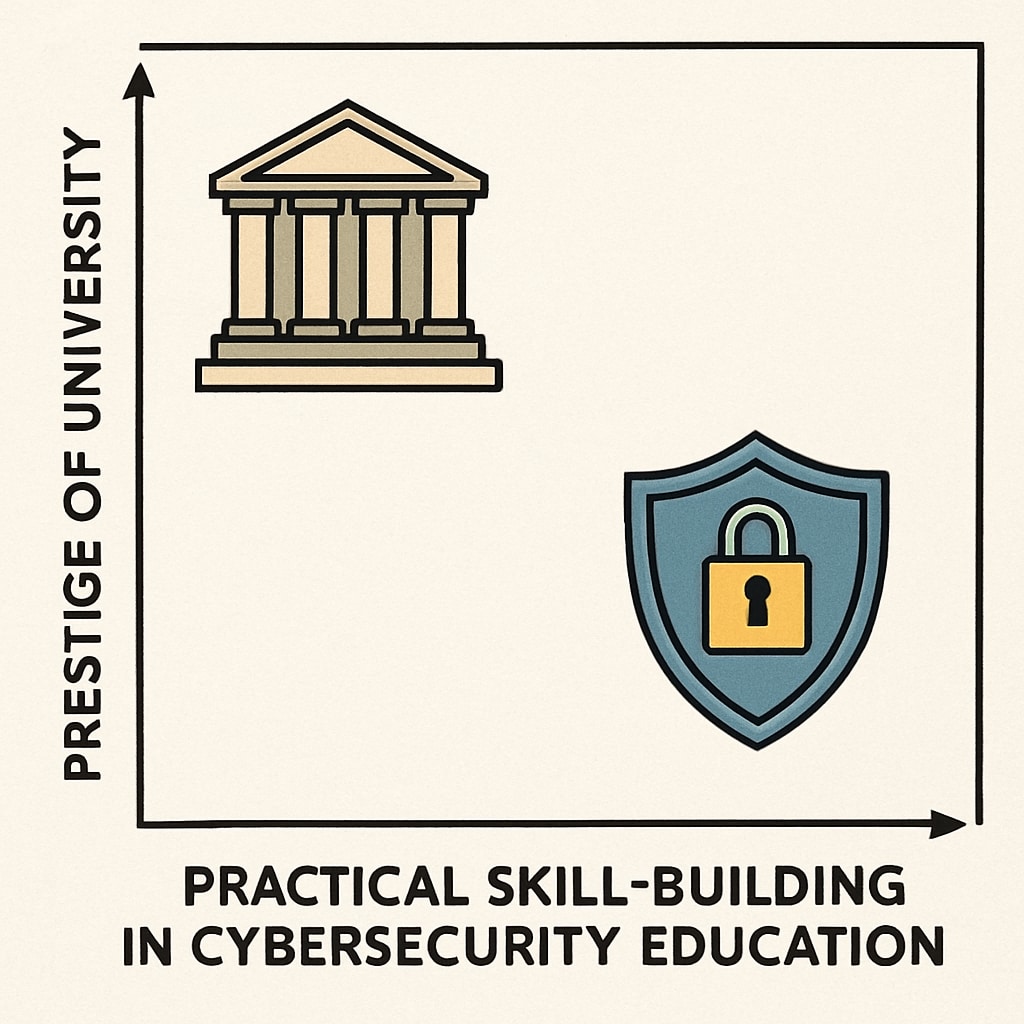The intersection of university reputation, career prospects, and cybersecurity education presents a unique challenge for students and parents alike. As the demand for cybersecurity professionals continues to rise globally, choosing the right educational institution has become more critical than ever. Should one prioritize the prestige of a university or focus on the practical skill-building offered by specialized institutions? Understanding the interplay between these factors can help students make informed decisions about their future careers.
The Impact of University Reputation on Cybersecurity Careers
University reputation often acts as a powerful signal to employers. Degrees from prestigious institutions can open doors to elite internships, high-profile employers, and professional networks. Employers may perceive graduates from renowned universities as possessing higher academic rigor and leadership potential. For example, a degree from an Ivy League school or a globally recognized technical university might carry weight in cybersecurity job applications.
However, reputation alone is not enough. Employers in cybersecurity are increasingly emphasizing hands-on experience and certifications such as Certified Information Systems Security Professional (CISSP) or Certified Ethical Hacker (CEH). While top-tier universities may provide theoretical excellence, they sometimes lack the intensive, practical labs and real-world simulations offered in specialized cybersecurity schools.

Skills vs Prestige: Striking the Right Balance
When evaluating universities, students must weigh prestige against the institution’s ability to prepare them for the realities of cybersecurity work. Some specialized colleges and training programs focus exclusively on cybersecurity, offering state-of-the-art labs, industry partnerships, and targeted certifications. These programs may not have the same global recognition as elite universities but often lead to job offers in less time.
In addition, some employers value practical skills over the name of the school on a resume. For example, companies in the tech industry frequently prioritize candidates who demonstrate proficiency in coding, penetration testing, or threat analysis during interviews. Therefore, a blend of theoretical knowledge, hands-on experience, and certifications can be more advantageous than a degree from a prestigious but non-specialized institution.

Planning for Success in Cybersecurity Education
For K12 students and parents planning for the future, it is essential to assess career goals and learning preferences. Below are some key considerations:
- Research Program Curriculum: Look into whether the university or college offers specialized cybersecurity courses, labs, and certifications.
- Evaluate Industry Connections: Universities with strong partnerships with tech companies can provide internship and job opportunities directly after graduation.
- Consider Costs: Prestigious universities often come with higher tuition fees, but specialized schools may offer more focused training at a lower cost.
- Seek Alumni Feedback: Hearing from alumni about their career paths can provide valuable insights into the effectiveness of the program.
Ultimately, choosing the right institution boils down to aligning educational opportunities with career aspirations. While university reputation can offer a strong foundation, practical skills and certifications often have a direct impact on employability in the cybersecurity field.
Conclusion: Navigating the Crossroads
The decision between attending a prestigious university and opting for a specialized cybersecurity program is not straightforward. Both options have their merits, and the best choice depends on individual career goals, financial considerations, and learning preferences. By carefully evaluating the balance between reputation and skill-building, students can position themselves for success in a competitive and dynamic cybersecurity job market.
As the demand for cybersecurity professionals continues to grow, choosing the right educational path can make a significant difference in career outcomes. Whether you prioritize university reputation or practical skills, remember that the ultimate goal is to become a well-rounded professional capable of tackling real-world security challenges.


